
Allergies in pets have become all too common in recent years and are linked to many contributing factors such as environmental allergies, processed foods, flea and tick medications, grass, and more. Even overbreeding has contributed to the declining health and immune resistance in pets.
Food allergies and allergic dermatitis are the most common types of allergic reactions we see in dogs. A pet affected with dermatitis will experience symptoms such as weepy, blister-like lesions, hives, crusting, thickening, scaling, and hair loss. The pet will also most likely scratch, bite, and lick the skin excessively, which may lead to a secondary bacterial infection.
ALLERGY SYMPTOMS IN PETS
• Red inflamed skin
• Sneezing
• Itchy ears
• Chronic ear infections
• Itchy, runny eyes
• Constant licking
• Paw biting
• Bald spots
The best way to treat an allergy is to avoid the cause. This may or may not always be possible. I have known many dogs to bite and dig at their paws, having an allergic reaction to something as simple and common as grass.

In terms of treatment, pet allergies are usually treated the same as they are for us humans, with “medication.” Many pet owners are uneasy with the thought that their furry companion may have to be on medication the rest of their life. Some of these medications also have harmful side effects, especially when taken long-term.
Switching your dog or cat to a raw food diet can usually eliminate most health aliments. Unfortunately for most, this is not financially possible unless you are a butcher and have access to an endless supply of extra meat.
Thankfully, there is another natural solution, and it’s not nearly as expensive!
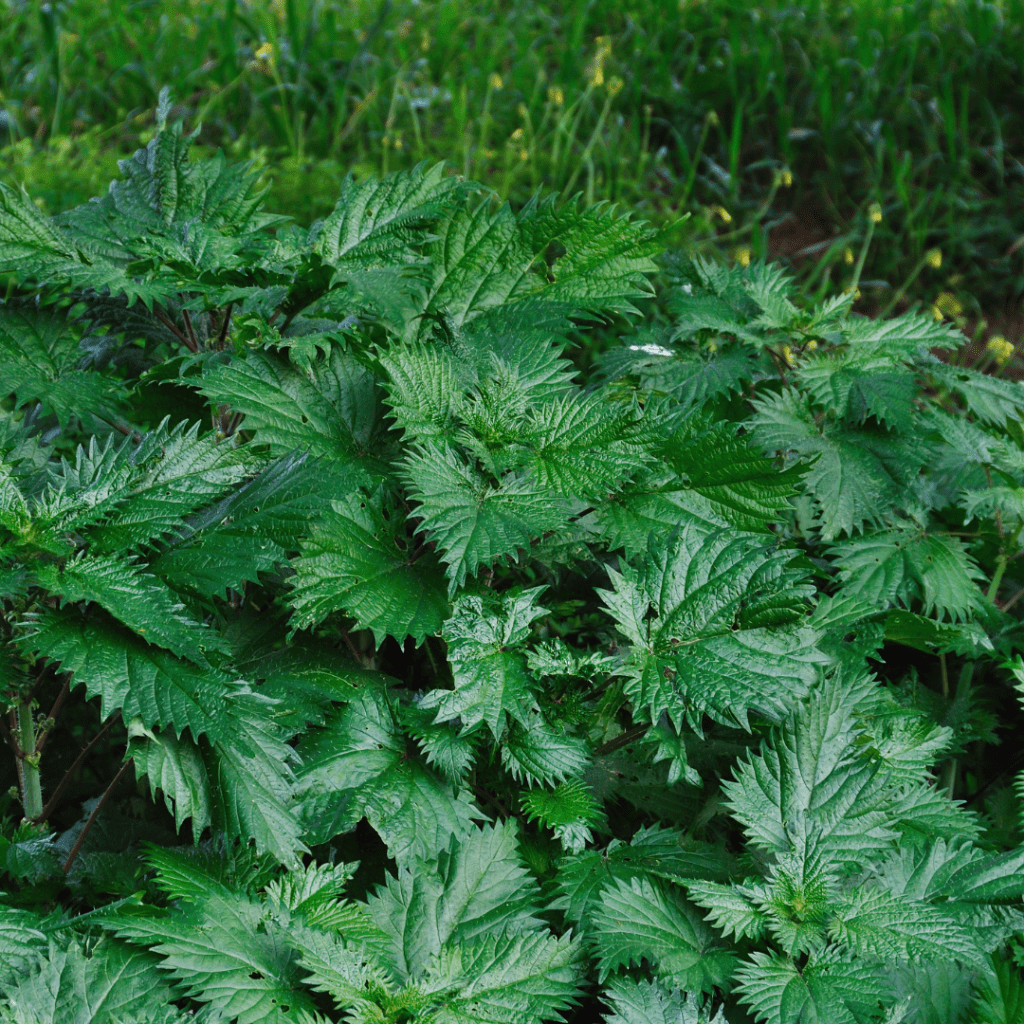
The stinging nettle plant (Urtica dioica) has been well known and used throughout the ages for its amazing natural antihistamine qualities. Widely used by herbalists as an allergy treatment, nettle is particularly effective against allergies in both people and pets due to its ability to inhibit the inflammatory pathways that begin the cascade of allergic symptoms. These antihistamine properties help to reduce inflammation in the body, especially the respiratory tract. Not only will nettles help with reducing allergies, but due to their anti-inflammatory nature, they can also help with the pain of arthritis.
One of the best ways to help keep your dog (and yourself) healthy and happy is to feed them/you a healthy diet rich in vitamins and minerals. Stinging nettles are a great addition to add to any diet, as they are rich in a wide range of nutrients.
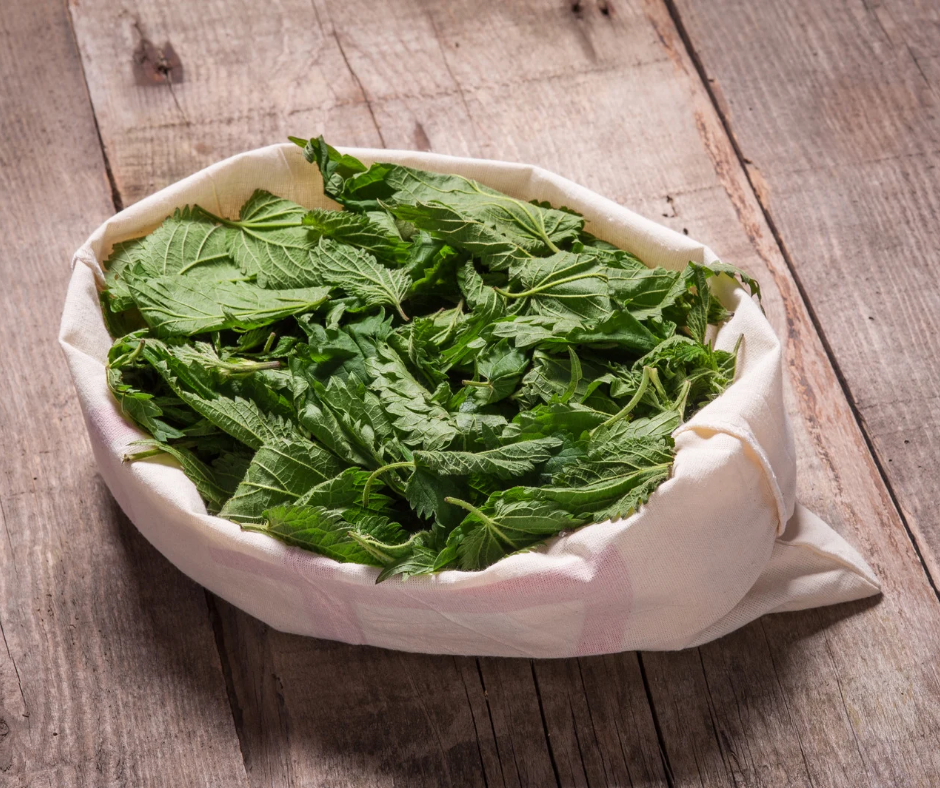
In 10 grams of nettles, you’ll get:
3.4 grams protein
297 mg calcium
68 mg phosphorus
3.22 mg iron
65 mg magnesium
2 mg beta-carotene
345 mg potassium
Vitamins A, C, D, and B-complex
These vitamins come in a form that is very palatable and easily absorbed into the body without creating any stress on the digestive system, kidneys, or liver. Nettles make a superb natural supplement for dogs in need of vitamins and trace minerals in their diets but do not need to be taking huge multi-vitamin supplements. Nettles are an excellent addition to your dog’s well-balanced.

Ways to give your pet nettle
Dried Nettle
DOGS: Add 1/2 tsp – 1 tsp of dried leaf per cup of food daily. If you have a really large dog such as a Great Dane or Saint Bernard, you could go up to 2 teaspoons per cup of food.
You can mix the dried nettle in their food daily, either during allergy season or all year long for dogs with chronic symptoms. You should NOT, however, give nettles to pregnant dogs. They may interact with any NSAIDS you might be giving your her.
CATS: 1/3-1/2 teaspoon per cup of food
You can always adjust for your pets needs, as stinging nettle is a relatively safe herb with little to no side effects.
Tincture
Stinging nettle can easily be made into a glycerin extract and administer directly in the mouth, or added to food. If you’re not familiar with this process, you can follow our step-by-step guide here.
Not interested in making your own, but still would like to try the benefits of nettle for your pet? Dont worry, Healthprimitive has you covered! Purchase our Seasonal Support for pets by clicking here.
Topical Wash
Nettle leaf tea is a wonderful way to give your dog relief from the constant itch of dry skin or flea bites. On top of this, it will help provide nourishment for the fur that will leave their coat healthier than any type of store-bought conditioner.
Make a strong tea from the leaves using 2 teaspoons of dried nettle, per one cup of boiling water. Steep 10- 15 minutes, strain, and allow it to cool completely.
Pour the tea all over your dog, making sure to thoroughly soak every inch of skin. Do not rinse it back off. Allow it to dry naturally. The tea will provide instant long-lasting relief from itching and dry skin.
Do not use harsh soaps or shampoos on your dog prior to this treatment.
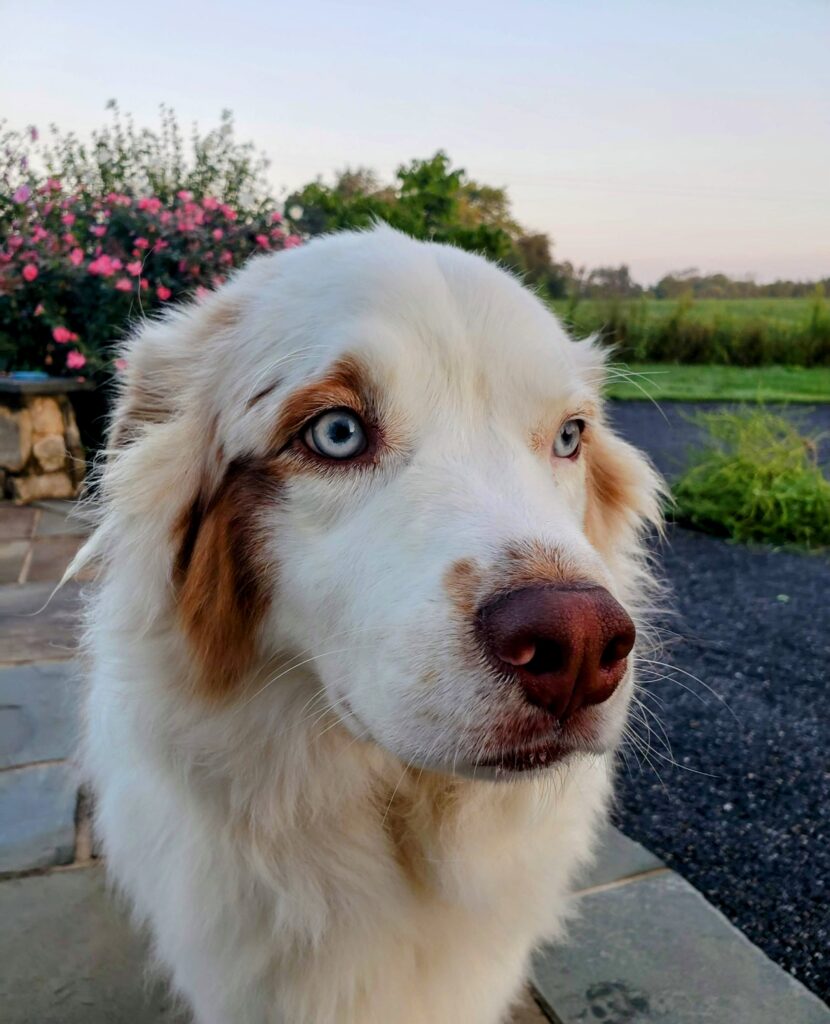
My story
I used to own a male Australian shepherd named Ghost. Years ago, our family cat scratched him on the nose during a spat. Where the scratch had been, a hot spot developed because Ghost continued to rub the area and wouldn’t leave it alone. This manifested a hotspot, which is an allergic reaction response. The horrible sore that developed was hard to treat, and I had to place a cone on his head to prevent him from aggravating the wound.
It became apparent to me that he needed an antihistamine to help control the itching. Because Ghost was like one of my children, I wanted to treat him naturally just as I would them. Instead of rushing to the vet, I decided to give stinging nettle a try. Knowing how wonderfully nettle helps my children during allergy season, I knew it could probably help him in the same way.
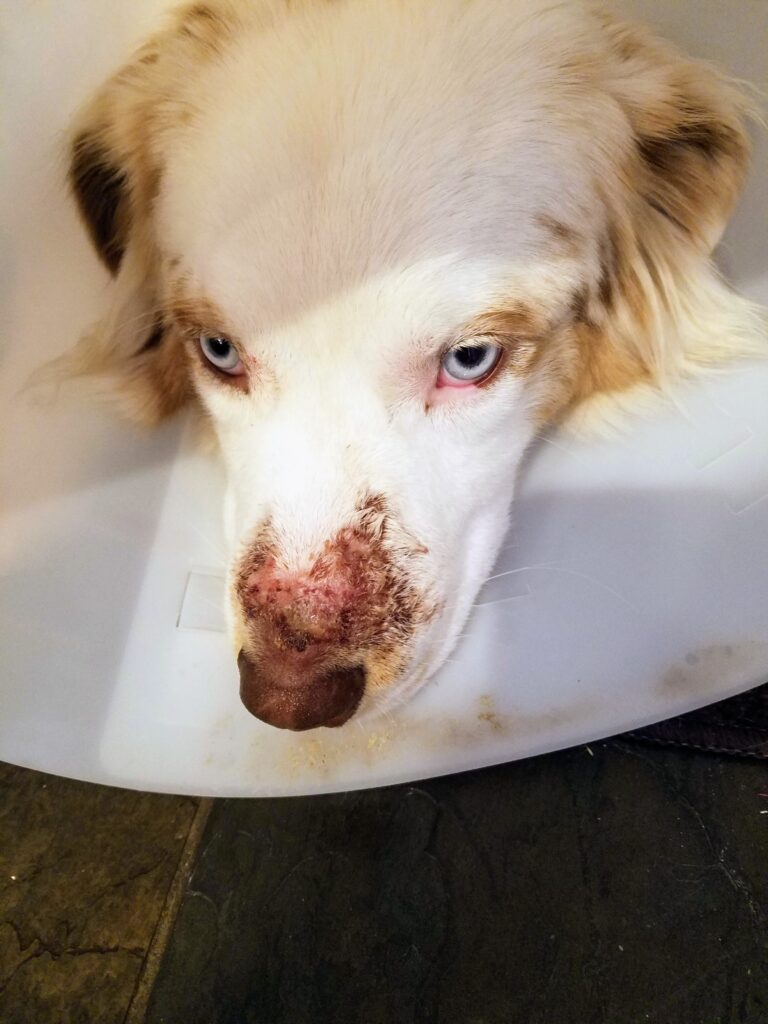
I sprinkled one tsp of dried stinging nettle over his food twice a day for about a week. After only a few days, I saw great improvement and could tell he was feeling much better.
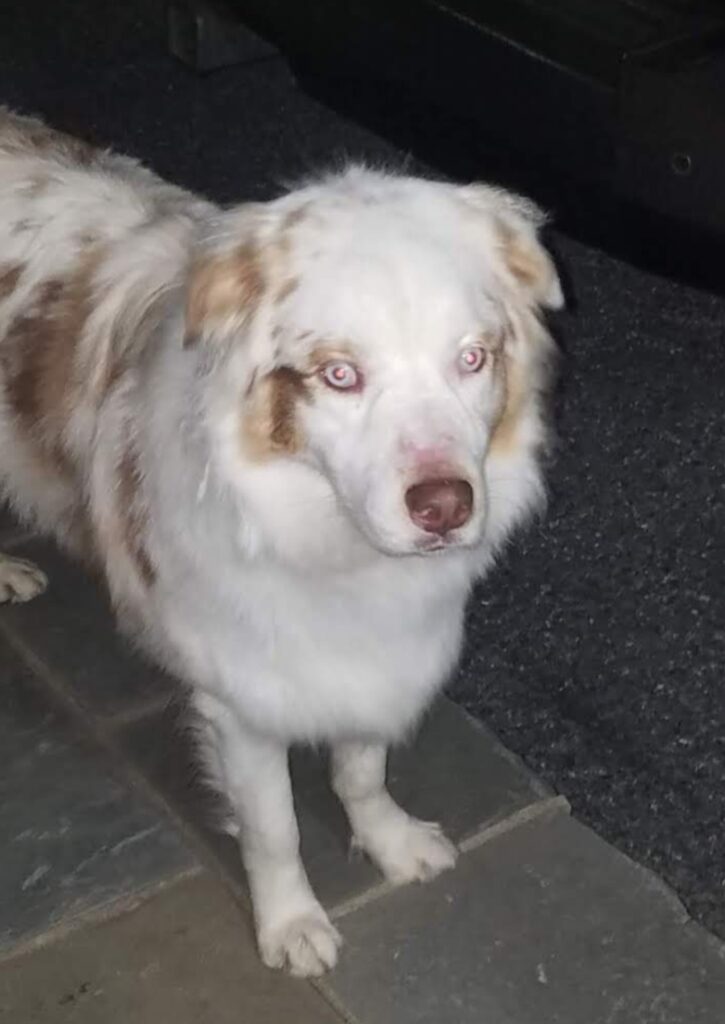
Within 2 weeks he was completely healed. It took a few more weeks for the fur on his nose to completely grow back in. Using stinging nettle made dramatic improvements to his overall health and comfort.
Safety Considerations
It is always best to have your dog checked by a vet before using any herbal treatments or supplements, especially if your pet takes medication. Do not give stinging nettle to pregnant pets. If you think your pet is suffering from a food allergy, speak with your vet about switching their diet. Just as with humans, it’s best to get to the root cause, rather than suppress the symptoms. View our disclaimer here.
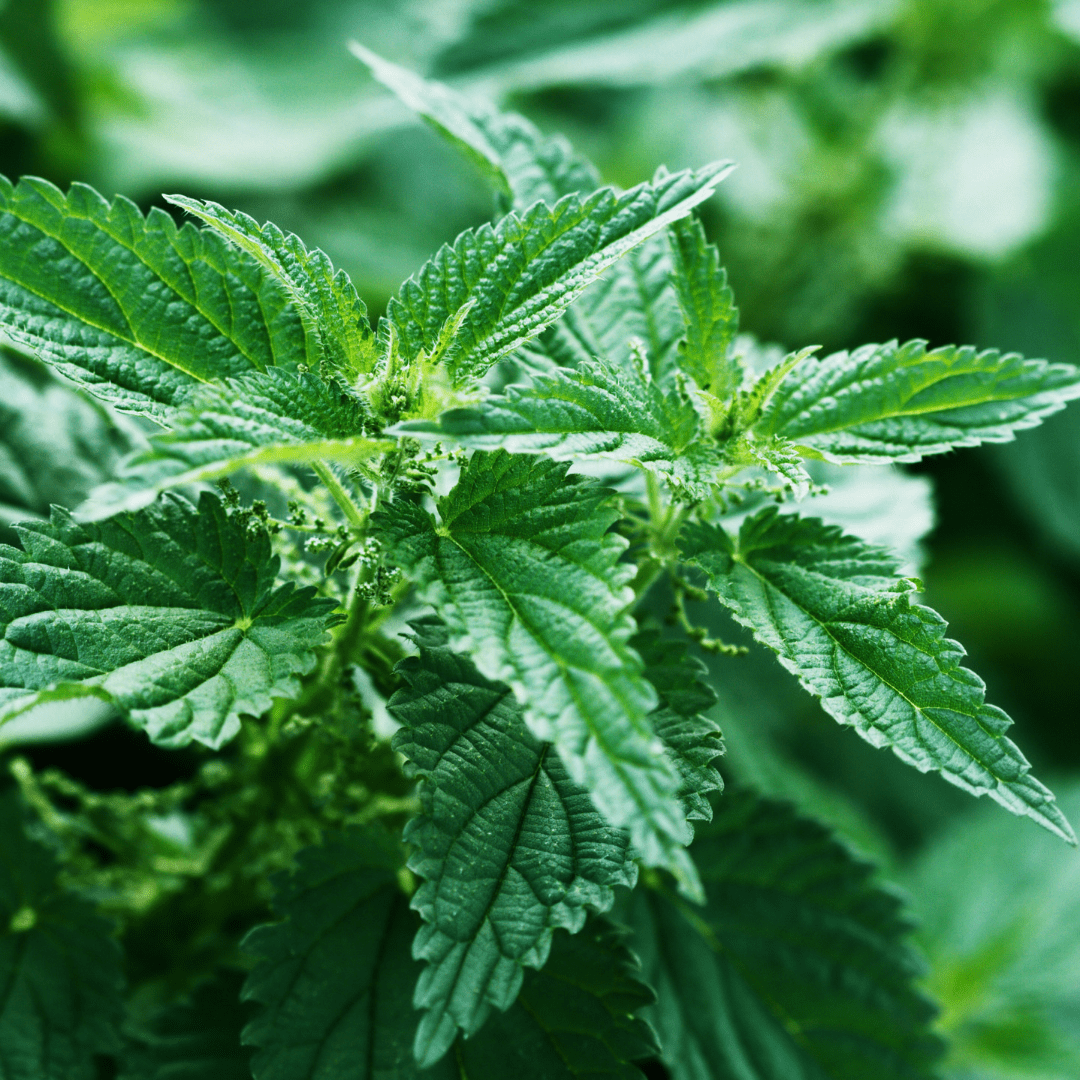
Final Thought
Stinging nettle can make a world of difference for anyone suffering from an allergies, humans and pets alike. It is safe, natural and extremely effective, making it one of the best natural solutions around.
Before resorting to potentially harmful medication, give stinging nettle a try. You won’t be sorry you did!
Stay Wild

Kayce Heister
Kayce is an Author, Clinical Herbalist, Naturopathic Practitioner (HHP), Active Forager, Wild Food Chef and Mother of three. She has spent the last 20 years practicing herbalism and natural health, and spends most of her time educating others on the amazing potential the natural world can offer.
Sources Below
https://pmc.ncbi.nlm.nih.gov/articles/PMC5963652/
https://pmc.ncbi.nlm.nih.gov/articles/PMC9253158/

